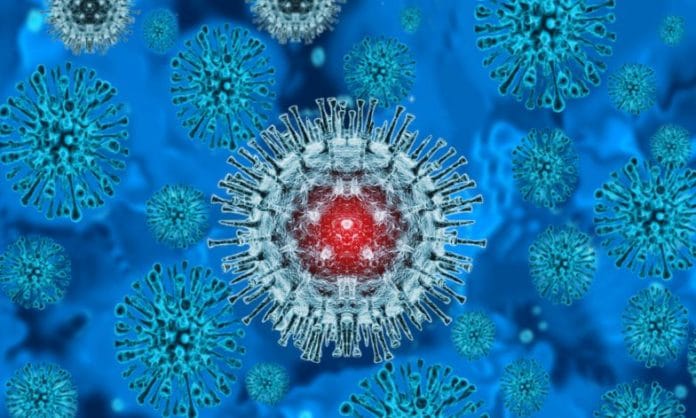On 23 July, Tedros Adhanom Ghebreyesus, Director General of the World Health Organization (WHO), declared a public health emergency of international concern over the outbreak of monkeypox.
This public health emergency is defined by the WHO as an “extraordinary event” whose spread constitutes a “risk to public health in other States” and which may require “coordinated international action”.
The WHO has thus issued a series of recommendations to curb the epidemic which has so far affected nearly 17,000 people in seventy-four countries.
Caused by the monkeypox virus, the symptoms are similar to those of smallpox, but are clinically less dangerous. Symptoms of monkeypox include a rash with blisters, fever, headaches, low energy and muscle aches.
Monkeypox virus is mostly transmitted to humans from wild animals such as rodents and primates. It is also spread between humans during close contact – through infected skin lesions or body fluids, including sexual contact – or through contact with contaminated materials.
Mostly spontaneous recoveries
This disease often heals spontaneously within 14 to 21 days. It can be benign, but infectious infections caused by the disease can cause pain or itching.
Several experimental studies have shown that vaccination against smallpox is 85% effective in preventing monkeypox. Thus, having been previously vaccinated against smallpox may result in a less severe condition.
However, the smallpox vaccine has not been administered since the eradication of the disease in 1980.
The virus in Europe
The disease occurs mainly in central and western Africa, often near tropical rainforests, but is increasingly appearing in urban areas. Monkeypox is now a disease of global importance for public health as it is not limited to West and Central African countries but also affects the rest of the world including some Western European countries such as Germany, France or the UK.
Since June 15, 2022, more than 1,500 cases of monkeypox have been reported to the World Health Organization (WHO) by 29 Member States where the disease is not endemic. So far, no deaths have been reported in these countries.
The number of cases remains quite low but some cases have been reported in countries that were not endemic for monkeypox. At this stage,the extent of community transmission is unclear, but it is likely that more cases will still be reported in the coming days.
“As of now, an effective response to monkeypox will not require the same extensive population measures as we needed for COVID-19 because the virus does not spread in the same way” said Dr. Hans Henri P. Kluge, WHO Regional Director for Europe, in a statement on May 31.
Fighting against stigmatization
UNAIDS, the United Nations agency leading the global effort to end AIDS as a public health threat, has denounced the stigmatization of certain communities, particularly homosexuals and people of African descent.
The organization is concerned about racist and homophobic stereotypes. A significant number of cases have been identified among the LGBTQ+ community, with some cases identified in sexual health clinics.
In a press release, UNAIDS said the lessons learned in the fight against AIDS are that stigma and blame directed at certain groups of people can quickly weaken the response to epidemics.
“Stigma and accusations undermine confidence and the ability to respond effectively during epidemics like this one,” said UNAIDS Acting Executive Director Matthew Kavanagh. “This epidemic underscores the urgent need for our leaders to strengthen prevention against pandemics, including by building community-led capacity and human rights infrastructure.”
On May 3rd, a global research consultation convened by the WHO gathered over 500 experts to review the available data on the virus, its transmission, clinical characteristics, treatments and potential vaccines. Improved control of monkeypox in endemic countries is essential to address the development of the disease in other non-endemic countries.
More information
Monkeypox: UNAIDS concerned over stigmatization of homosexuals
Updated: 25 July

